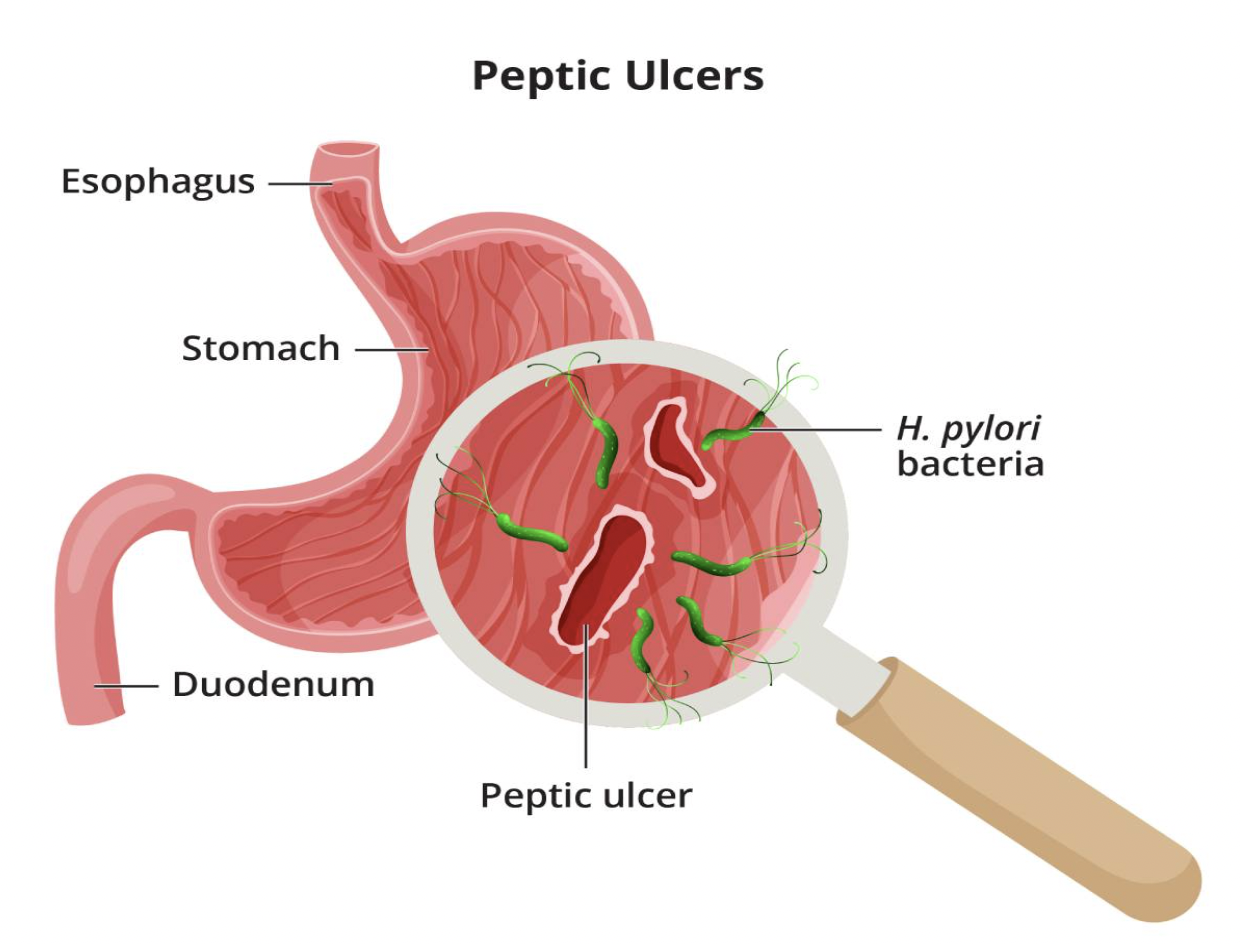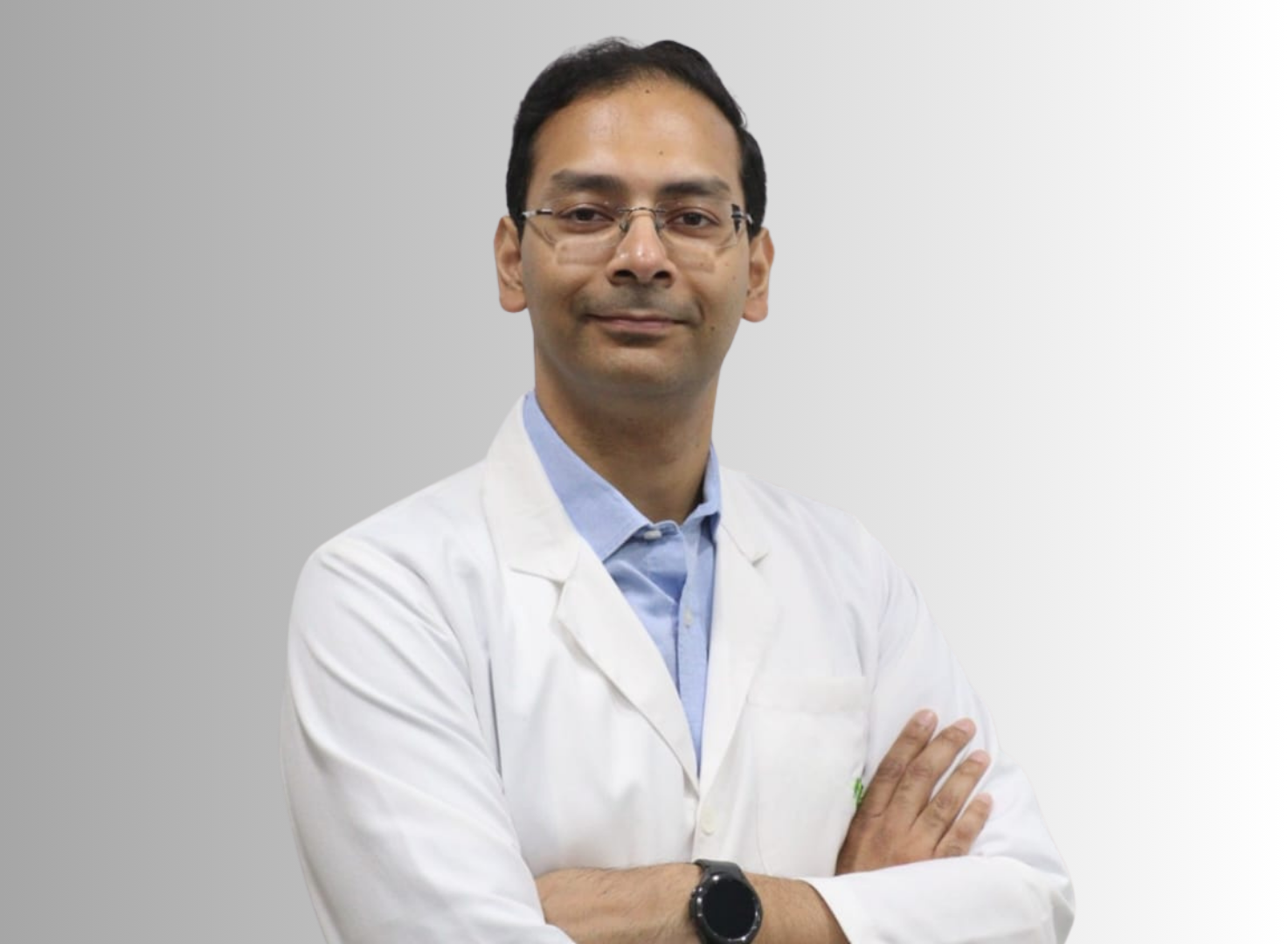Overview
A peptic ulcer, or ulcer, refers to a sore that forms when the digestive juices remove the lining of the digestive system. It may develop on the lining of the stomach or duodenum. An ulcer can also affect other areas of the digestive tract. It is vital to be aware of the symptoms of this condition so that you can take the right action promptly for its treatment.
What is an ulcer?

A peptic ulcer is an open sore developing on the lining of the stomach and the upper part of the small intestine. They can be of various types, including gastric ulcers and duodenal ulcers. The former appears on the inside of the stomach, whereas the latter appears on the inside of the upper part of the small intestine or duodenum.
According to Dr. Anandno Sengupta (an ulcer doctor in Ashok Vihar), the most common cause of an ulcer is an infection involving the bacterium Helicobacter pylori, commonly referred to as H. pylori. In addition, long-term use of non-steroidal anti-inflammatory drugs, such as ibuprofen and naproxen sodium, may also lead to the development of ulcers inside the stomach, causing immense inflammation, pain, and discomfort. Stress and spicy foods are not the primary cause of this condition; however, they may worsen the symptoms.
When to See an Ulcer Doctor?
Many individuals with ulcers do not experience symptoms. If there are symptoms, they include the following:
- Dull or burning pain in the stomach. For some people, the pain may worsen after consuming meals at dinner time. For others, it may worsen after eating anything at any time of the day.
- A feeling of fullness and bloating.
- Heartburn and belching.
A peptic ulcer may also cause bleeding from the ulcer with symptoms like vomiting blood, which may be red or black in appearance. Other symptoms that call for a visit to an ulcer doctor include having dark blood in stools, a feeling of dizziness, and, in cases where antacids and acid blockers relieve pain, but temporarily. For those living in or around Ashok Vihar, they can book appointments with Dr. Anando Sengupta, an ulcer doctor in Ashok Vihar.
Treatment for Ulcer
After confirming your diagnosis, the ulcer treatment will decide the line of treatment. It includes killing the H. pylori germ through medication. The doctor may as well suggest stopping the consumption of NSAIDs or lowering their dosage.
- Antibiotics to kill H. pylori: If the cause of ulcers in your stomach is H. pylori, the doctor will prescribe a combination of antibiotics to alleviate the symptoms of ulcers. It includes amoxicillin, clarithromycin, metronidazole, tinidazole, and levofloxacin.
- Acid-blocking medicines: The doctor may suggest medicines to block acid, including proton pump inhibitors (PPIs) like omeprazole, lansoprazole, rabeprazole, esomeprazole, and pantoprazole. The medication may be prescribed for short-term or long-term use, depending on the severity of your condition. In some cases, these PPIs may be administered intravenously.
- Medicines to reduce stomach acids and counter their effects: The doctor will prescribe acid blockers, including histamine blockers, to relieve ulcer pain and help with healing. You may also be given antacids that counter the effects of stomach acid. However, they are not primarily used to heal ulcers.
- Medicines to protect the lining of the stomach and small intestine: The doctor may prescribe medicines to protect the lining of the stomach and small intestine to avoid ulcers from recurring. These include prescription medicines, such as sucralfate and misoprostol.
Surgical Treatment
It is very rare for an ulcer doctor to suggest surgery as a treatment for ulcers because in most cases, medications are highly effective. The cases where the doctor may recommend surgical treatment include:
- When the ulcer fails to heal with medication
- When the ulcer recurs repeatedly
- When the ulcer bleeds persistently
- When the ulcer results in a tear in the stomach.
The exact nature of the surgery varies, depending on the patient’s unique case. If you have a bleeding ulcer, the doctor will perform emergency surgery to stop the bleeding. They may also perform a therapeutic endoscopy, where an endoscope is used to fix the bleeding. This procedure is less invasive than a traditional surgery.
Lifestyle Changes
In addition to medication or surgical treatment, ulcer doctors will suggest important lifestyle changes to avoid the recurrence of ulcers.
- Consume a healthy diet, including fruits, vegetables, grains, and fiber. Incorporate probiotic-rich foods with lots of good bacteria to keep H. pylori in check.
- Smoking may lead to inflammation in the stomach lining and prevent an ulcer from healing. Quit smoking for faster recovery.
- The doctor will also suggest reducing the consumption of alcohol.
- Stress management is another lifestyle change you should commit to in order to manage the symptoms of this condition.
Why Choose Us?
Choosing Dr. Anando Sengupta for ulcer treatment in Ashok Nagar means opting for a trusted professional to get the best treatment and maintain your digestive health in the long run. Dr. Sengupta is an expert medical Gastroenterologist in Ashok Vihar with extensive experience and expertise in digestive health, making him an ideal professional for the diagnosis, non-surgical, as well as surgical treatment of ulcers. The doctor uses comprehensive diagnostic techniques involving cutting-edge tools for the accurate diagnosis of the condition and offers personalized solutions focused on tailored medical management and advanced therapies to achieve complete ulcer healing.
The medical team at Dr. Anando Sengupta’s clinic ensures a holistic patient care committed to combining effective ulcer treatment with lifestyle guidance and compassionate support. Such an integrated approach makes him the most reliable ulcer doctor in Ashok Vihar.
Frequently Asked Questions
A stomach ulcer refers to an open sore developing on the lining of the stomach or duodenum. It may also affect other areas of the digestive system.
The ulcer doctor takes into account your health history and symptoms to diagnose the condition. In some cases, they may run some tests and perform procedures to understand the severity of the ulcer.
You should book an appointment with the ulcer doctor upon experiencing symptoms such as bloody stools, blood in the vomit, and in cases where medicines like antacids are unable to offer relief.
Ulcers are curable with medications and lifestyle changes like diet, exercise, and stress management. Severe cases of ulcers may be treated through surgical intervention.




